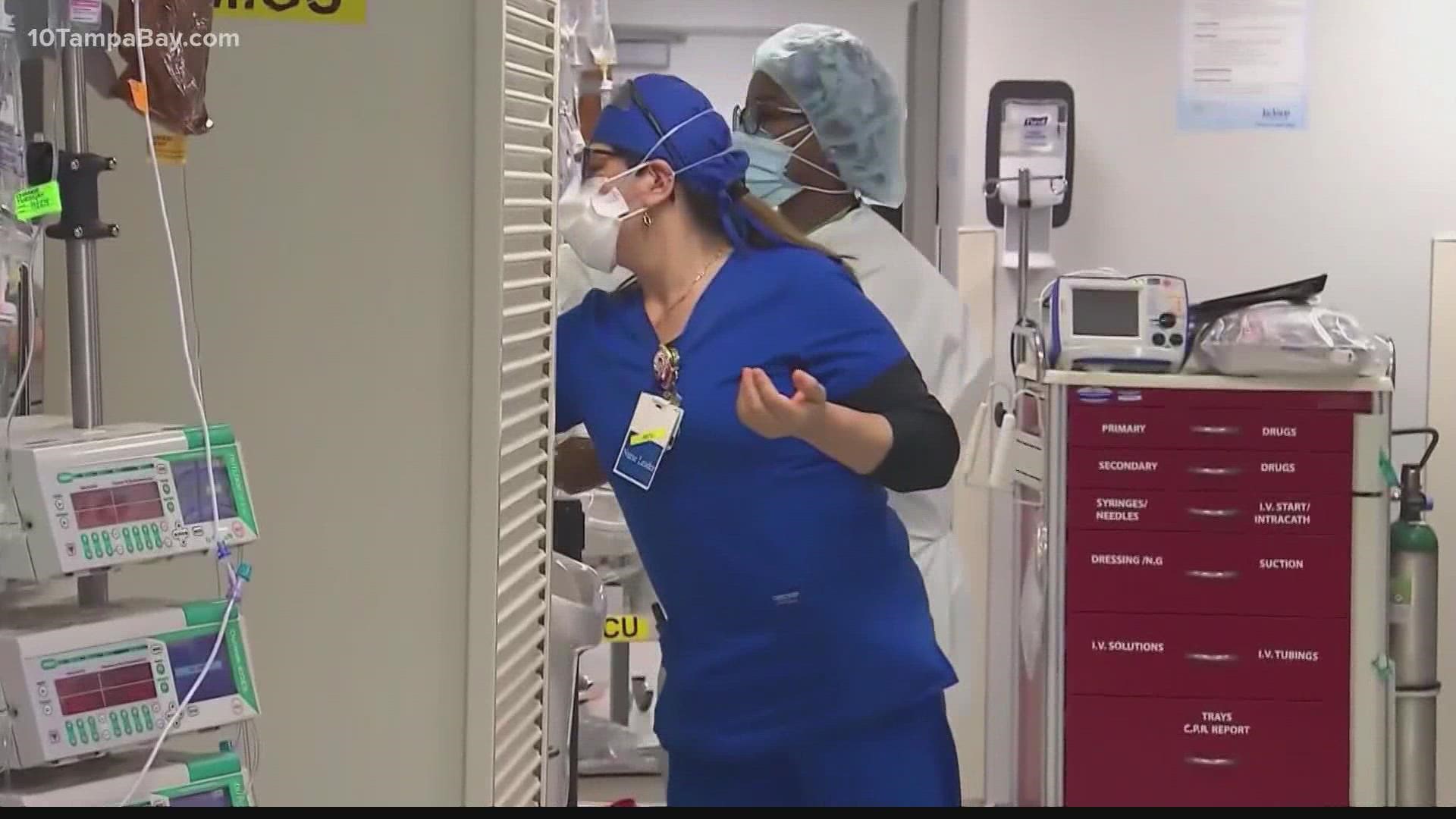TAMPA, Fla. — An Alabama man recently died after a cardiac event. He was turned away from 43 hospitals because of cardiac ICU bed shortages.
So what happens if you get sick, COVID-related or not, and find yourself in need of an ICU bed that isn't available? We took this question to Tampa Bay hospitals.
Hospitals communicate with each other internally when issues like bed shortages arise. In the case of the Alabama man, his local hospital reached out to 43 other facilities across multiple states on the patient's behalf.
In the Tampa Bay area, it's no different. If a patient's needs exceed the hospital's ability of care, that hospital would then reach out to a transfer center, or directly to other hospitals.
At Johns Hopkins All Children's Hospital, the vice president of medical affairs said they do everything they can to take on patients who would benefit from their care.
"Obviously everything we try to do is to bring these patients in," Dr. Joe Perno said. "We feel we're the best place for them, so anything we can do if their child is in need, we want to bring them into our facility in a safe matter."
Perno said the only time a hospital would turn down a transfer is if they didn't have the space. Not just the bed, but the staff to provide proper care. Transfers are given the same priority as any admission at Johns Hopkins All Children's.
Given the nature of a children's hospital, Perno said the only time one patient would be chosen over another is if one of those patients could be adequately treated at a general hospital instead of a pediatric hospital. All Children's treats patients up to age 21. Perno said the scenario rarely arises.
At BayCare Health Systems, the healthcare system has a similar approach to patient transfers. Hospitals communicate internally and decisions are made on bed availability, staffing, and patient needs.
Dr. Andrew Wilson is the Chief Medical Officer at the Morton Plant Hospital. He said if patients or families of patients want to advocate for transfers, the conversation should start with the doctors at your bedside.
"Work with the physicians, because the physicians are going to be the ones who do those calls to the transfer center," Wilson said. "[Those doctors will] ultimately speak physician-to-physician to get that transfer approved to another facility."
To check on ICU availability in your area, or at hospitals across the country, click here.

